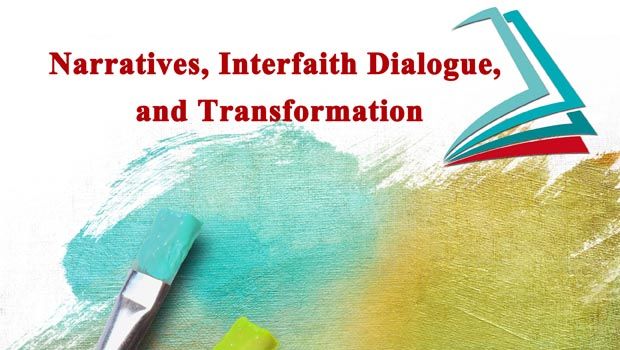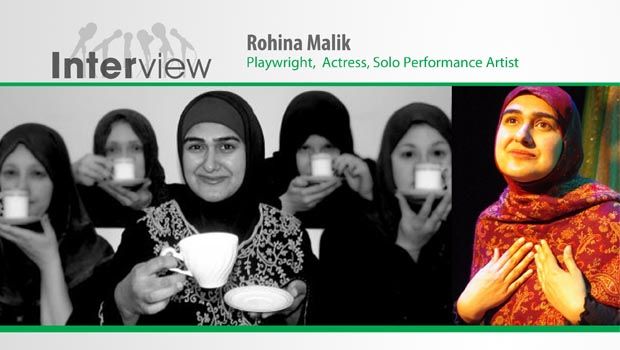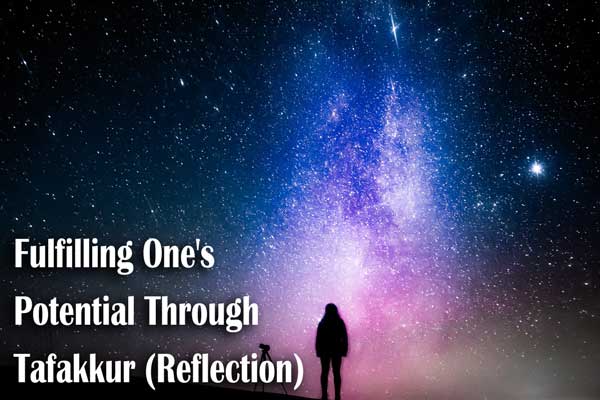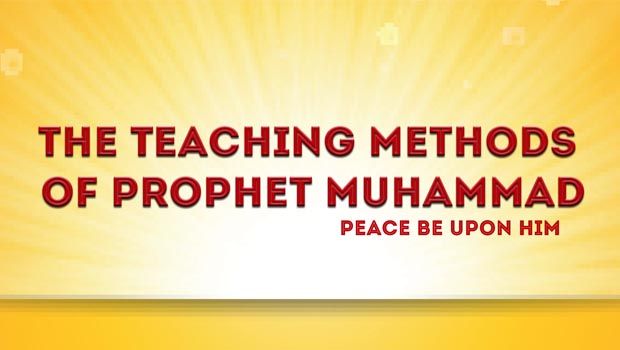Narratives are important. They are central to how we understand ourselves and betoken not just the chronology but also the meaning of our lives. Narratives are the stories we tell ourselves and others about who we are, what our experiences have been, and what we project, both positive and negative on the future. Narratives help us make sense of the world.
There is healing in sharing our story with someone willing to “walk a mile in our shoes.”
There are personal narratives and those of tribes, faith communities, cultures, and nations. Narratives are very powerful in their effect on individuals and groups. A personal narrative that says “Oh, poor me, nothing ever goes right… everything is stacked against me. What’s the use of trying anything since I’m just going to fail in the end” —this narrative, when believed with one’s heart and soul, vigorously demotivates this person and he is likely to fail at everything he tries as his narrative is self-sabotaging. Conversely, taking a group narrative as an example, one that says “My country is the greatest in the world, we are the most moral and generous people, always looking to advance the cause of freedom, social justice, and democracy”— this narrative, when believed with one’s heart and soul, motivates this person to be zealously patriotic and nationalistic. This is a narrative of self and national aggrandizement.
It should be no surprise to us that narratives are an odd mix of reality and bunk, ranging from pure propaganda to something of deception (of self and others) to truth-telling. Every culture throughout history has plied its way forward through storytelling, using narratives to not only preserve its traditions, but also to educate or entertain. Cultural narratives endure because a multitude finds some sense or solace or inspiration in the message. And they act as audience again and again to the messages.
Interfaith dialogue can help one to understand the viewpoints of others, even those who had been seen as enemies.
Personal narratives also require audience. We all need people in our lives that are willing to listen to us, to try to understand our experience, what we are going through, our suffering, loss, triumph, or hope. But there is no guarantee that people will listen to our story when we need a sympathetic ear. Like the father in Anton Chekhov’s short story, Misery, we may find no one who will take the time to share our burden. The father is a Russian sleigh-driver and wants desperately to share his grief over his son’s death in the past week. He tries to no avail to share his despair with his passengers, one after another. The father “cannot think about his son when he is alone…. To talk about him with someone is possible, but to think of him and picture him is insufferable anguish….” Finally, he finds his only comfort in telling his trusty horse about his misery.
Healing Through Narratives
Indeed, there is healing in sharing our story with someone willing to “walk a mile in our shoes.” Drs. Les and Leslie Parrott wrote a book called Trading Places. They affirm that “When you accurately see any situation from another’s point of view, when you can experience it like they do, you instantly take a different approach to it.” Mahatma Gandhi said, “Three quarters of the miseries and misunderstandings in the world would finish, if people were to put on the shoes of their adversaries and understood their points of view.”
Consider the following, modified from a true story related by a faith-based group in St. Louis:
One winter day a group of people were meeting at a local community center. They were citizens who were concerned about the growing number of homeless individuals in their city and they were meeting in an impoverished part of town, discussing various ideas about how they could effectively help those in need and how they could counteract the government policies that were cutting into the safety net for the poor. All of sudden the door of the meeting room opened and a old woman, bent with fatigue and wearing ragged clothing, stood there awkwardly and clearly embarrassed. The meeting leader asked, “May I help you?” The woman apologized for interrupting them and then said, “I wonder if you can tell me where the nearest Salvation Army center is.” The meeting leader asked, “Are you looking for a meal?” The woman answered, “No, I need to get a pair of shoes.” The meeting leader had already noticed that the woman’s shoes were full of holes and falling apart. She asked the woman, “What size do you wear?” “Eight and a half,” answered the woman. The leader bent down and took off one of her shoes and said, “Please sit here and try this on.” The needy woman said, “Oh, I couldn’t do that, those are brand new shoes.” The leader gently encouraged her to try them on and the woman slipped on the shoes and a slightly sheepish smile appeared on her face as she quietly said, almost in a whisper, “They’re so nice and warm.” The leader touched her arm and said, “Please consider them yours. I’ve got another pair at home.” The poor woman thanked her and as she left she said, “God bless all of you.”
After the homeless woman left, everyone was quiet, touched by what they had witnessed. One man in the group said, “But how will you go home? It’s snowing and cold and you don’t have any shoes.” The generous woman said, “My socks are thick…and I do have a pair of shoes…” as she put the homeless woman’s worn and torn shoes on her feet. As the group were leaving, one person said, “Be careful that you don’t step into icy puddles with those shoes on. They’re full of holes.” The woman answered with a smile, “I’ll be careful…now I’ll really know what it’s like to walk in the shoes of a poor, hurting human being. I just wish that our government officials could walk in these shoes on a cold, wet, snowy night!”
Narratives in Interfaith Dialogue
Narratives, as we can see, are also ways to instruct, to make a moral point. Sometimes through narrative we can persuade another to see things differently, to change their perspective about an issue or just to consider elements that escaped their notice previously. One of the most favorable venues for personal narratives is interfaith dialogue. Those who participate have the opportunity to share what brought them to the group, what memories or experiences predisposed them to want to reach out and find common ground with persons from other faith communities. Some individuals, whether Christian, Jewish, or Muslim, think that interfaith dialogue requires one to dilute their religious precepts; or that the participants are looking to develop some syncretistic faith, a kind of merging of the various faith traditions into one universalist religion. But most participants in interfaith dialogue will tell you that is not at all the case. Each comes to the experience with conviction about his or her belief system and religious tradition. Most will say they are not looking to convert and do not expect to be converted to some other faith tradition. They are looking to share, to build understanding, to develop structures and collaborative opportunities to fight for social justice and contribute to peacemaking in the world.
Narratives Can Transform
A most compelling example of such an experience is the case of Miko Peled. Peled comes from a very prominent Israeli family. His grandfather was amongst the founders of Israel, and his father was a renowned general in the Israeli army and directly involved in military decision-making, especially with regard to the Six Day War. How is it that Miko Peled, a Jewish man from a renowned Zionist family, came to the perspective that Israel was built on myth and double standard, that it is in no way a democracy, and that it is nothing short of an apartheid society, governed by a radical regime?
In an interview he did in 2012 with Alex Becker of realchangenews.org, Peled shared how he came to understand the reality of the Israeli-Palestinian conflict. He says that after he served in the Israeli military, he travelled widely and then settled in San Diego to raise a family. In 1997 he got the news that his 13-year-old niece, Smadar, had been killed in a suicide bombing in Jerusalem. Peled’s sister, the mother of Smadar, blamed the policies of the Israeli government; she firmly believed that her daughter was “sacrificed for the Israeli government’s megalomania.” Peled says that this family tragedy and his sister’s dissident viewpoint “helped set me on the right path.” He found out about and started attending a Jewish-Palestinian dialogue group in Southern California. He points out in the interview that despite having grown up in Israel in such close proximity to Palestinians and with such egregious conflict raging in his own country throughout his lifetime, he did not meet a Palestinian until he was 39 years old. He says, “You know, there’s this image of Jerusalem, that it’s a united, multicultural city. It is multicultural, but it’s completely segregated. It’s a racist city, and there’s a lot of discrimination. So if you’re an Israeli boy growing up, you go to school, but you never meet Palestinians. You never see Palestinians. You know, they could be on the moon. If you do see them, they are in marketplaces or working as laborers. So the first time I really met Palestinians was in San Diego.”
He relates that his transformation took place during his experience in attending this interfaith, intercultural group. Peled says, “…if you want dialogue to work, there’s a point you have to cross, the point where trust replaces fear. I had to replace my fear with trust. The Palestinians I spent time with in these groups were very nurturing and generous. The fear was not so much of the people: Really, the fear was learning the horrific truth. As I listened, I learned about what we did — not from a book or from a political statement or a speech, but from people just sitting like this and telling their story, not intending to convince anyone and not intending to accuse anyone. That’s the power of dialogue.”
He learned from the Palestinians sitting across from him their perspective and their experience of the Nakba (the Catastophe) and its ongoing aftermath. In listening to their stories, hearing their narratives about how the Zionist forces “began a massive assault on the Palestinian towns and began a massive campaign of ethnic cleansing,” he says that he had a hard time coming to terms with this other side of the story: “It was absolutely horrific. I don’t know how to describe it. I wasn’t only proud of being an Israeli, I was proud of being an Israeli with pedigree. My grandfather’s name is on the Declaration of Independence, you know. It was pretty hard, and it took a long time to process.”
But he did process it. He writes on his blog, http://mikopeled.com, “The State of Israel today is governed in a way that cannot be sustained, where the two nations it governs, Israelis and Palestinians are used and abused and it is a state of affairs that should not be tolerated…one nation ruling over another while controlling of the land and its resources. It is a reality where half of the population lives in what it thinks is a Western democracy while keeping the other half imprisoned by a ruthless defense apparatus that is becoming more violent by the day. In my book, The General’s Son, Journey of an Israeli in Palestine, I show how it is that the son of an Israeli General and a staunch Zionist came to these realizations. Realizing that your side of the story is not the only side to the story, and then accepting rather than fighting this realization and in the end finding that the story upon which I was raised, was a lie – now that is an interesting journey.” (For more of Peled’s story and viewpoints, go to YouTube and search Miko Peled 1 of 5 “The General’s Son.”)
Interfaith dialogue, as Peled’s story shows, can help one to understand the viewpoints of others, even those who had been seen as enemies. We should take note that Peled says the Palestinians in the group were “very nurturing and generous”; here they were, sitting across from a man who belonged to the nation that occupied their land and relentlessly oppressed them and their families, yet they spoke “not intending to convince anyone and not intending to accuse anyone.” And so that man who had been of the enemy, now became a true friend and a supporter of Palestinian rights. As Peled said, “That’s the power of dialogue.”
“And who could be better of speech than he who calls [his fellow-men] unto God, and does what is just and right, and says, ‘Verily, I am of those who have surrendered themselves to God?’ Nor can goodness and evil be equal. Repel [evil] with what is better — then he between whom you and him there was enmity will become as though he was a devoted friend!” (Qur’an 41:33-34).
Further Objectives in Interfaith Dialogue
In Dialogue in Islam: Qur’an, Sunnah, History, authors Ahmet Kurucan and Mustafa Kas?m Erol describe a number of other objectives, not as dramatic as the transformation that Peled underwent but nonetheless important, that can be achieved through interfaith dialogue:
“Dialogue enriches our experience as human beings.
Dialogue can enhance our understanding of ourselves because, by contextualizing ourselves among others who are different, we see our own beliefs, values and identities more clearly.
[Through dialogue,] we see more clearly what is distinctive in our own identity, as well as learning to appreciate what is distinctive about others. [In dialogue] we challenge stereotypes, correct misconceptions and reduce prejudice. In turn we gain understanding of the beliefs and values of those others, which may correct mistakes in our perceptions of them.Dialogue can enable us to explore together solutions to all kinds of shared problems. Today we face global problems such as moral degeneration, environmental pollution, unfair distribution of economic gains, disease, poverty, collapse of family values, fanaticism in the name of race, religion and nationalism, and problems threatening world peace such as terrorism, war and exploitation.”
The urgency for cooperation to solve the issues of our day is echoed by many. Jorge Mario Bergoglio, who chose the name “Francis” upon becoming Pope this year, has been known throughout his life for humility, dedication to helping the poor and marginalized, and being committed to dialogue as the means to bring people together to solve our human problems. He chose the name Francis after Francis of Assisi (who died in 1226) whose devotion “to make society more humane and more just” makes the name-choice fitting. The day following his inauguration, the Pope addressed representatives from Christian and non-Christian religions who had been invited to Rome. He first addressed the Muslims who, he said, “adore the one, living, and merciful God and who call upon Him in prayer.” Then, to all of those in the audience, he said, “I really appreciate your presence. In it I see a tangible sign of the desire to grow in mutual respect and cooperation for the common good of humanity.” On another occasion he said, “My wish is that the dialogue between us should help to build bridges connecting all people, in such a way that everyone can see in the other not an enemy, not a rival, but a brother or sister to be welcomed and embraced.”
The press release of the 2009 book, The Saint and the Sultan: The Crusades, Islam, and Francis of Assisi’s Mission of Peace by Paul Moses, describes the meeting between St. Francis of Assisi and Malik al-Kamil, the Sultan of Egypt and nephew of Salah ad-Din: “In 1219, as the Fifth Crusade was being fought, Francis crossed enemy lines to gain an audience with Malik al-Kamil, the Sultan of Egypt. The two talked of war and peace and faith and when Francis returned home, he proposed that his Order of the Friars Minor live peaceably among the followers of Islam–a revolutionary call at a moment when Christendom pinned its hopes for converting Muslims on the battlefield.”
In Franciscan Nonviolence: Stories, Reflections, Principles, Practices and Resources by Butigan, Litell, and Vitale, the authors write that the encounter between Francis of Assisi and the Sultan represents “the ability to listen respectfully, and to be willing to be changed by an aspect of truth expressed by another.” They write that Francis of Assisi and Sultan Malik al-Kamil demonstrated “a willingness to search together for aspects of truth found in different traditions.” In a piece on Huffington Post, author Omar Sacirbey writes, “Chris van Gorder, a scholar of Christian-Muslim relations at Baylor University, asserts that St. Francis, a former soldier, was driven by compassion, a hatred for war, a desire to learn from others, and ‘to build missionistic bridges of reconciliation and healing.’” According to Van Gorder, “St. Francis of Assisi was a confident evangelist and a fearless peacemaker who was appalled at the rapacious violence of his era.”
The Need for Increasing Dialogue
Today we are also living in an era of rapacious violence. And we are living in an era of increasing inter-religious dialogue. Adnan Husain, who teaches at Queen’s University in Canada and is the author of Identity Polemics: Encounters with Islam in the Medieval Mediterranean World (1150-1300), points out that such dialogues were commonplace in the Islamic world in the Middle Ages and public debates and discussions among Muslims, Jews, and Christians were evidence of a multi-religious society. While those debates and discussions were more intended to competitively demonstrate the truth of one’s own religion than to reach greater mutual understanding, they were noteworthy for their liveliness and passion. Rabbi Eric H. Yoffe warns of the tendency of interfaith groups today to be satisfied with “mouthing a few noble, often-repeated sentiments.” He says of these groups, “if we don’t dig beneath the surface and focus on substance rather than rhetoric, they mean very little.” Yet despite the flaws, he continues in his dedication to participating in interfaith dialogue because “very occasionally, something extraordinary happens: One of these conversations changes me, binds me to my colleagues, advances my understanding of myself and others, and adds texture and depth to my own religious beliefs and convictions.” While he acknowledges that he and other participants are too often “caught in the same old patterns and clichés that predominate in these settings,” those magical moments do transpire and make it all worthwhile: “Still, from time to time, we find a way to speak from the heart. When we do, God’s presence — variously felt and differently experienced — creates an atmosphere of faith, partnership and common purpose in the room. For those rare moments, I will continue to make the effort, without regrets.”
Protest and Prayer
Those magical moments happen when people speak from the heart, when they voice their spiritual passion and ethical commitment. What unites participants at an interfaith meeting is their devotion to God, their commitment to serve others and society, and their insistence that social justice must be wrought from the dedicated efforts of those who believe in truth and justice, whatever their religious persuasion. That passion is communicated in many ways. Abraham Joshua Heschel , a rabbi and civil rights activist, was a contemporary of Dr. Martin Luther King, Jr. and there are photos of him walking arm-in-arm with King in the front row of marchers at Selma in 1965. He later wrote about his experience of that march, “For many of us the march from Selma to Montgomery was about protest and prayer. Legs are not lips and walking is not kneeling. And yet our legs uttered songs. Even without words, our march was worship. I felt my legs were praying.” That is the depth of passion that inspires others.
Heschel has said that the religious individual is one ”… whose greatest passion is compassion, whose greatest strength is love and defiance of despair.” We indeed, must not despair at the complex array of challenges and issues that the world today faces. And we must be creative and resourceful in fighting for a just society. The power of people everywhere, decent, caring people who communicate and collaborate, form the foundation upon which to demand justice for all human beings. King wrote, “To accept passively an unjust system is to cooperate with that system.” He also said, “We must all learn to live together as brothers or we will all perish together as fools.”
A Great World House
In Where Do We Go From Here: Chaos or Community, Dr. Martin Luther King, Jr. astutely points out, “This is the great new problem of mankind. We have inherited a large house, a great world house in which we have to live together—black and white, Easterner and Westerner, Gentile and Jew, Catholic and Protestant, Moslem and Hindu — a family unduly separated in ideas, culture and interest, who, because we can never again live apart, must learn somehow to live with each other in peace.”
Interfaith dialogue facilitates our living together in the “great world house,” in finding our common ground, in learning to speak our personal narratives from the heart so that others, possibly, might be touched and transformed. Dialogue also allows us to practice “listening respectfully, and to be willing to be changed by an aspect of truth expressed by another,” to put on the shoes of the “other” with volition and courage, even the shoes of our adversaries so that we might “understood their points of view” and then possibly, be transformed ourselves. Dialogue provides opportunity to “search together for aspects of truth found in different traditions.” All these are ways to “dig beneath the surface and focus on substance rather than rhetoric” so that we might together, in great and growing numbers, incline toward peace and “learn to live together as brothers [and sisters].” Because too many appear willing to “perish together as fools.”
“O humankind, We created you from a male and female, and made you into nations and tribes so that you may know one another. In God’s eyes, the most honored of you are the ones most mindful of Him: God is All-Knowing, All-Aware” (Qur’an 49:13).





